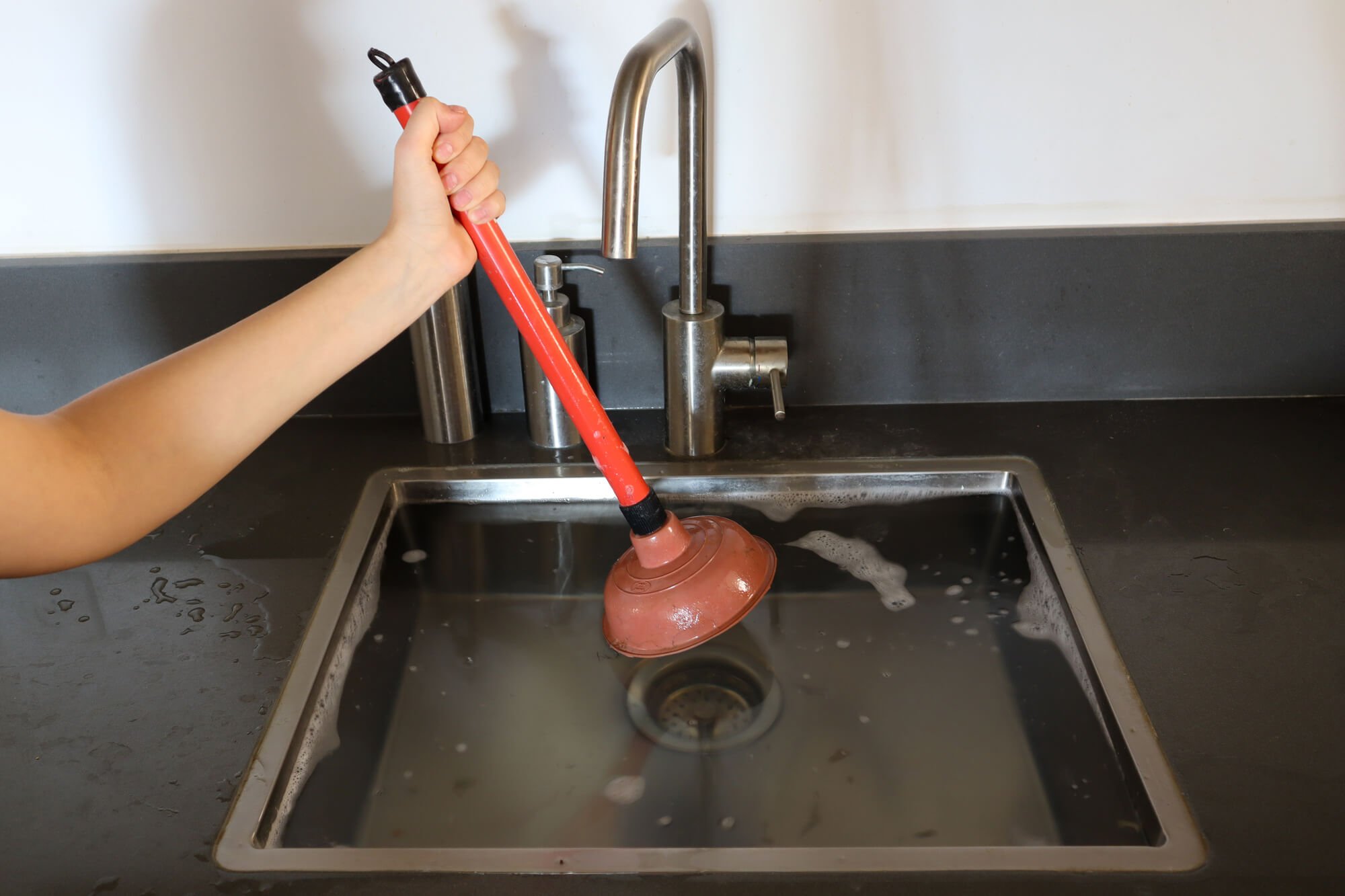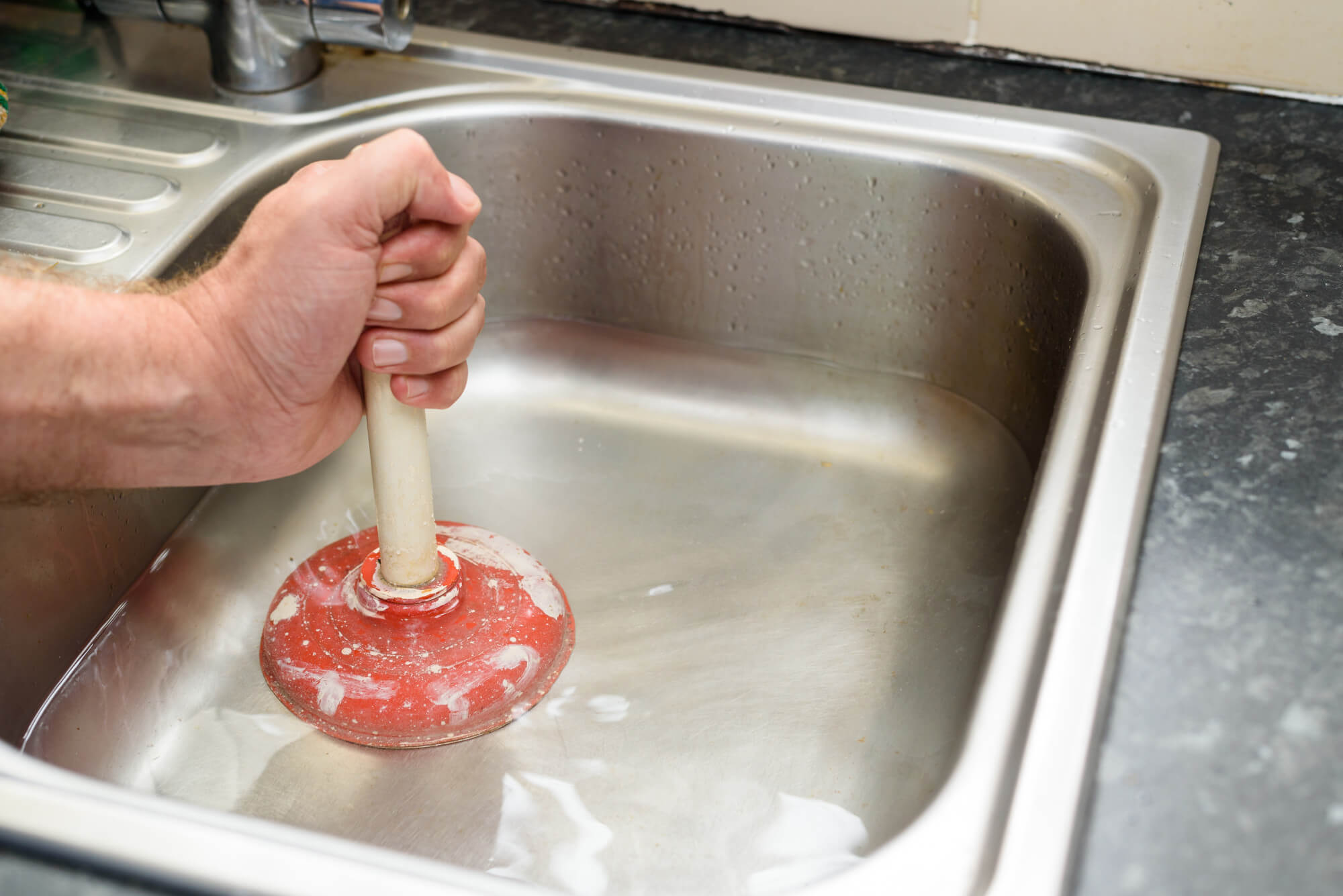Measures for Managing a Blocked Drain Before Calling Professional Plumbers
Measures for Managing a Blocked Drain Before Calling Professional Plumbers
Blog Article
This article in the next paragraphs in relation to 8 Tips For Clearing A Blocked Drain is truly informative. Give it a try and make your own final thoughts.

Intro
Handling an obstructed drainpipe can be a frustrating experience, interrupting daily activities and potentially triggering damages to your property. However, before reaching out to plumbing experts, there are steps you can take to deal with the issue yourself. In this overview, we'll explore do it yourself options and preventive measures to tackle an obstructed drain efficiently.
Recognizing the Concern
The primary step in attending to an obstructed drainpipe is identifying the indicators. Sluggish water drainage, gurgling noises, foul odors originating from drains, or water backing up are common signs of a blocked drainpipe. Recognizing these indications early can aid avoid better complications.
Common Causes of Obstructed Drainpipes
Comprehending the factors that contribute to drain pipes clogs is vital for effective resolution. Usual wrongdoers include hair, soap residue, grease, food particles, and international objects like hygienic products or paper towels. Tree origins invading below ground pipes can additionally trigger substantial blockages.
Do it yourself Solutions
For minor obstructions, numerous DIY solutions can be efficient. Pouring boiling water down the drainpipe can help dissolve oil and debris. Sodium bicarbonate and vinegar or a mix of salt and baking soft drink can work as all-natural cleansers. Using a plunger or pipes snake to dislodge obstructions is another alternative.
Devices and Equipment
Having the right devices handy can make DIY drainpipe cleaning up much more reliable. A bettor is a flexible tool for getting rid of blockages in sinks, commodes, and showers. A plumbing serpent or auger can get to much deeper clogs, while drainpipe cleansing chemicals can be used meticulously for stubborn obstructions.
Safety nets
To avoid future clogs, adopting preventive measures is essential. Set up drainpipe guards or filters to catch hair and debris prior to they go into the pipes. Regularly flush drains pipes with hot water to liquify grease build-up, and avoid dealing with oil or solid waste away.
When to Call an Expert
While do it yourself services can solve minor obstructions, particular signs suggest the demand for specialist assistance. Persistent obstructions, foul odors despite cleansing initiatives, or multiple drains backing up concurrently are warnings that require skilled treatment.
Selecting the Right Plumbing Service
When picking a plumbing solution, think about elements such as experience, licensing, and consumer testimonials. Select a trustworthy plumbing technician with a track record of high quality handiwork and transparent prices methods.
Price Factors to consider
The price of professional drain cleaning services can differ relying on the severity of the blockage and the plumbing's rates. Demand quotes from multiple service providers and inquire about any type of surcharges to make sure transparency and prevent surprises.
Safety Precautions
When attempting DIY drainpipe cleansing, focus on security. Wear protective handwear covers and eyeglasses to prevent contact with dangerous chemicals or germs. Never blend different drainpipe cleansing products, as this can generate harmful fumes.
Situation Studies
Real-life instances illustrate the performance of DIY remedies and the value of prompt specialist intervention in settling drain obstructions.
Final thought
By following the suggestions outlined in this guide, you can properly deal with blocked drains and protect against future plumbing problems. Whether opting for do it yourself services or seeking professional help, punctual action is essential to preserving a healthy and balanced pipes system and maintaining the honesty of your home.
9 Ways You Can Clear a Blocked Drain
Blocked Drains from Hair
We’ve seen it all before, a build-up of hair that’s leads to a clogged drain. Most times it’s a moderately easy task to simply ‘remove the hair’, but if it’s not cleared up straight away – it can cause a lot of issues down the line.
Hair falling off the body in the shower or while getting ready over the sink and in the bathroom is one of the most common causes of blocked sinks and drains. But whilst it’s a common problem for many homeowners, there are ways you can fix your drain and put a long-term solution in place.
How to Fix Blocked Drains from Hair?
What to do: Small amounts of hair can be removed by pulling it out with gloved hands to avoid it getting worse. Drain cleaning devices such as drain spiders can also be purchased to help remove the hair from the drain. However, it’s important to be careful as some devices and cheap hair removal chemicals can make the problem worse.
It’s important to remove the hair before it gets clogged into the entry of the drain pipes. If you’re unable to reach the hair or the devices aren’t working as intended, it’s time to speak to a blocked drain specialist.
Blocked Drains from Plants and Dirt
Natural debris like trees, shrubs, dirt and leaves can be an issue for water drains, especially after spring and autumn. Your regular garden and drain maintenance that keeps the outdoor area looking great is also essential to the productivity of your water drains and pipes.
Leaves aren’t the only culprit, however – tree roots are notorious for growing underneath in search of water and as a result, will usually head straight to your drains.
How to Fix Blocked Drains from Plants and Dirt?
What to do: To prevent plants, leaves and dirt from blocking the drains, keep the outdoor area clear of fallen leaves and debris. If this mess is left long enough, it will cause your drains to become severely blocked.
Keep your trees well-watered so they are less drawn to the drains as a source of moisture and stay away from clogging plants where possible; like willow trees, oak trees, magnolias, boxwood shrubs, palm trees and gum trees.
While ensuring your yard is free from leaves and dirt is a great way to prevent build-up, sometimes the real issues lay under the surface. Tree roots can crack your drain pipes beneath your home – causing severe blockages and leaks. Specialist drain cleaning equipment can be used to clear the blockage and pipe relining technology can provide a long-term structural repair.
Blocked Drains from Grease Build-up
Like hair in the bathroom, grease and fat will build-up in the kitchen sink over time. These fatty substances are a very common cause of blocked drains and pipes and can be a nuisance to clear out.
Any grease waste or fatty substance that is washed down the sink will stick to the inside of the pipes and eventually build up to a point no liquid can pass through. It’s important to be aware that this grease doesn’t leave the pipes as easily as you would expect.
How to Fix Blocked Drains from Grease Build-up?
What to do: Avoid washing these fatty ingredients down the affected drain as much as possible. Grease that’s washed down the drain will cool and harden in the pipes.
A smart way to prevent this build-up of grease is to start collecting all glass jars that you purchase at the supermarket. Then, instead of pouring this oil or kitchen grease down the drain, put it in the small glass or plastic containers to discard with your garbage.
Blocked Drains from Toiletries
As more people get into the habit of disposing of toiletries down the drain, bigger problems are being caused in our pipes and sewers. Nappies and baby wipes are the two common issue items known to block drains after being flushed down the toilet.
Such items become immersed with water, they absorb the moisture and enlarge, quickly blocking access to water drains and pipes.
How to Fix Blocked Drains from Toiletries?
What to do: This way of disposing of toiletries is dreadful for the environment and everyone should be encouraged to dispose of toiletries the right way. In the home, these items should be taken out with your garbage, just as people should make use of the designated bins when using public changing rooms and toilets.
Blocked Drains from Heavy Rain and Storms
Throughout the wet season, drains will experience floods of water because of heavy rainfall. Because drains aren’t really designed to take the full impact of this weather, water build-up can be common in many Perth households.
When there is an overflow of rainwater in gutters and downpipes, there’s a good chance there’s a blocked drain that needs to be cleared out.
How to Fix Blocked Drains from Heavy Rain and Storms?
What to do: Ensure gutters and outdoor drains are cleaned during the wet season to prevent a build-up of leaves which will cause a bigger blockage. Problems caused by heavy rain and storms will usually require a plumber to help unclog and assist with the wastewater removal. If this is the case, contact them as soon as possible to prevent further build-up and potential flooding in your home and yard.

We were made aware of that editorial about How to handle a clogged drain in your home from an acquaintance on our other web blog. Do you know anybody else who is fascinated about the niche? Please feel free to share it. Thanks a bunch for your time. Come back soon.
This Resource Report this page